In the Global Task Force on Cholera Control’s handbook, “Ending Cholera,” we’re reminded of a simple fact: that cholera is “a disease of inequity.” As an ancient illness, cholera today still kills the most poor and vulnerable people, spreading along a map that is essentially the same as that of poverty. And it is a disease caused by poor access to safe drinking water, in which basic sanitation is a matter of life and death. Yet today, between 1.3 and 4 million people are affected by the illness annually across the globe, and incidents are rising, exacerbated by a dangerous cocktail of climate change, regional instability, and the lingering effects of the COVID-19 pandemic. In fact, 2022 saw an unprecedented rise in global cholera cases, with outbreaks in over 29 countries, of which, alarmingly, 13 had not reported cholera outbreaks in the previous year. As the data shows, case fatality rates (CFR) have been far above the acceptable threshold of less than 1%. In 2021, global CFR was nearly double the acceptable threshold and as high as 2.9% in Africa.
It was for this reason that SOLIDARITES INTERNATIONAL chose to focus on cholera at our UN Water Conference Side Event, held at the United Nations Plaza in New York on March 22nd. “With a long history of fighting water related diseases, and cholera in particular, we felt that 2023 was the right time for SOLIDARITES INTERNATIONAL to reaffirm our commitment to combating the illness and bring people together to discuss what it will take to stop its spread permanently. “
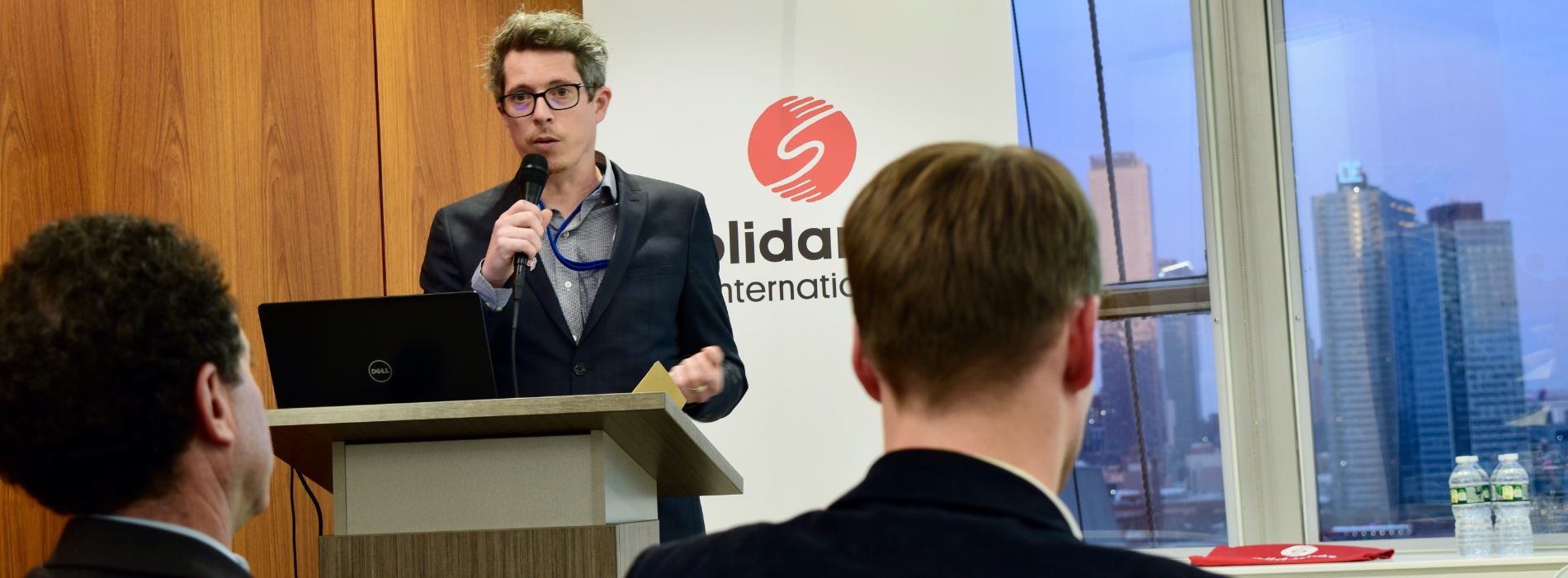
“We can do more, and we need to do better,” said Baptiste Lecuyot, SOLIDARITÉS INTERNATIONAL Senior WASH Advisor, during his presentation. With presentations from researchers across the development field, as well as scientists, writers, and humanitarian actors, the event brought people together to discuss the current state of cholera response efforts, highlight the leading research being done across sectors, and emphasize the importance of partnerships and collaboration across disciplinary lines.
“Every death from cholera is preventable,” the GTFCC handbook says, with tools we have available today. Ending cholera is a critical part of achieving the Sustainable Development Agenda by 2030, both as an explicit target for combatting water-related diseases within SDG 3 (“ensuring healthy lives and wellbeing for all”), and as a proxy measure for SDG 6 (“access to water and sanitation for all”).
This was the subject of our UN Side Event, which reaffirmed the commitment of SOLIDARITÉS INTERNATIONAL to act as a partner in the Global Task Force on Cholera Control. Here are a few of the event’s highlights.
Keynote from Professor Erik Orsenna
With a written bibliography dating back to 1973, the CV of Professor Erik Orsenna is difficult to summarize—spanning, as it does, a career spent working across fields as varied as research, politics and the arts. A senior advisor to French political leaders on matters of foreign policy, as well as a published, award-winning author, Professor Orsenna has had a distinguished career, committed, at all times, to supporting issues around water governance, as well as access to safe drinking water. His most recent book, called “The Earth is Thirsty,” captures this interest in essayistic form, with analyses of water politics across the world’s 32 major rivers.
Professor Orsenna kicked us off with a short keynote about his time spent in Calcutta as a young economist. Many years ago, Professor Orsenna told the crowd —“well into the last century”— he was sent on a mission to Calcutta, where he found himself caught in a very stern outbreak of cholera. Why cholera? he asked. For one simple reason: “In Calcutta, you had no toilets. No toilets at all.”
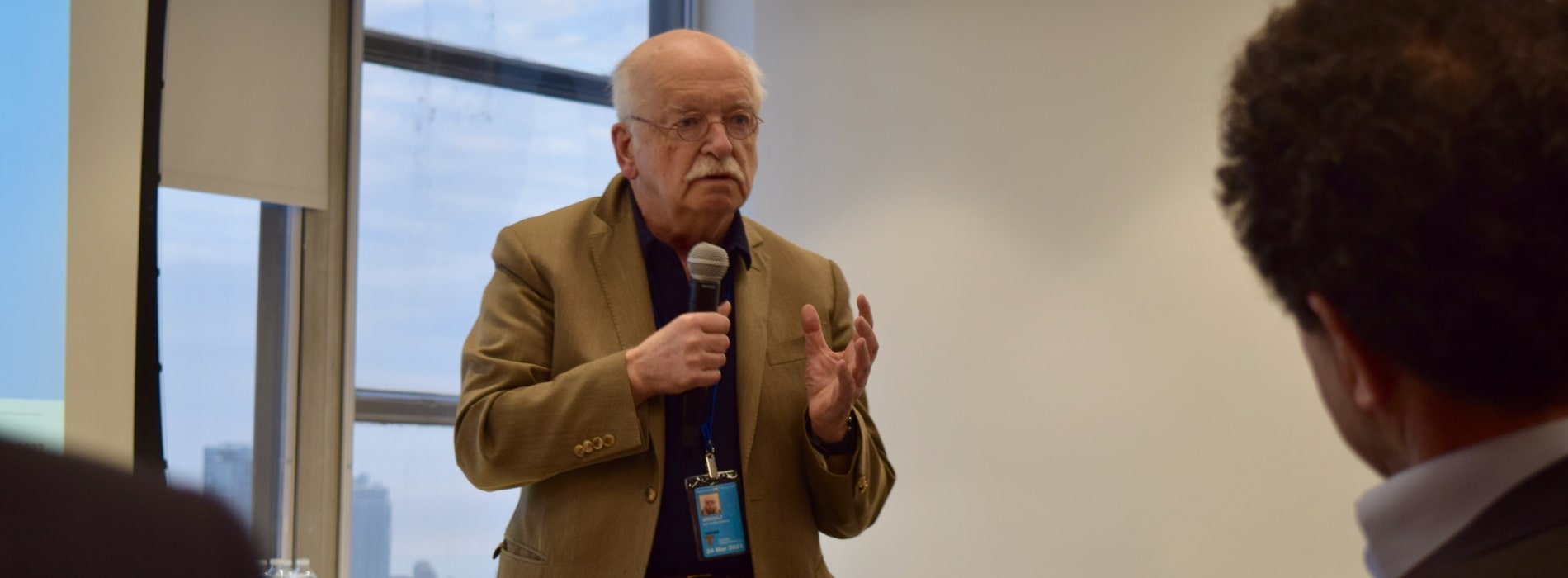
The problem at stake with water access, he explained, is not only scarcity, but contamination, which causes pandemics all over the world, especially those parts that are affected by wars and other crises.
“One of my fights,” he said, “is to defend the absolute necessity of toilets everywhere, and emphasize water sanitation for the sake of our health.”
Summarizing the current state of cholera outbreaks
In reference to Professor Orsenna’s story about Calcutta, Dr. Philippe Barboza kicked off his presentation by noting a stark reality: “The situation you faced in Calcutta has not changed.”
As a senior epidemiologist who heads the WHO’s health emergencies program for cholera and epidemic diarrheal diseases, as well as the Secretariat of the GTFCC, Dr. Barboza led the crowd through a summary of the current state of cholera’s spread, noting the “gross underestimation” of cases reported worldwide. On average, there are less than 100,000 cases reported worldwide today, he said, and less than 2,000 deaths, while the real numbers, based on modeling, are probably closer to 3 million cases, and close to 100,000 deaths, at least, those were the number in 2017, he said.
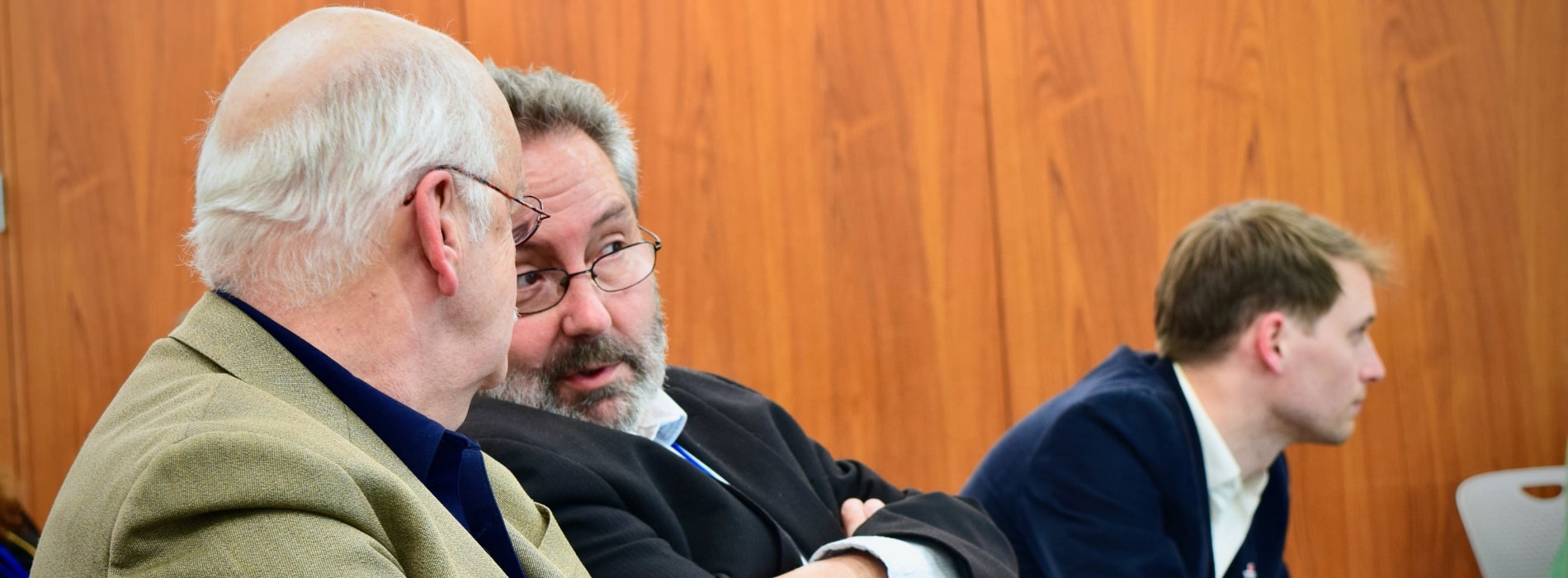
The key factors, as always, he said, are access to safe water, open defecation, humanitarian crises, natural disasters, and hunger. But, in the last two years, COVID-19 has had a major impact, “soaking up all the medical resources,” not just for cholera, but for many other illnesses, too.
The “amplifying factor,” he said, however —the “cherry on the pie”— is climate change. Beyond the number of countries affected, in the last few years we’ve seen much larger and deadlier outbreaks than before. “This is just totally unacceptable,” he said, “for a disease that is so easy to treat.” You don’t need an ICU to treat people, or respirators, or scaffolds. Simple IV fluid and antibiotics are necessary, and that’s it.
The leading cholera control approach, Dr. Barboza said, is to improve surveillance so that resources can be focused more effectively. It’s about reinforcing the healthcare system and engaging the community to be part of the solution. Already, in 2023, there are 24 countries that have been affected by cholera, and that’s in the lowest transmission point of the year. “It is going to get worse in the months to come,” Dr. Barboza said, so we need to act now.
Innovations in surveillance and data collection
As the Director of the John Hopkins Center for Humanitarian Health, and a distinguished physician, epidemiologist, and academic, Dr. Paul Spiegel has worked at the cutting edge of development innovation for over 25 years, merging perspectives from on-the-ground work in the UN, CDC, and Red Cross, with his background as a scientific researcher: identifying what can be done to improve data collection and surveillance within the field as a whole. Dr. Spiegel’s presentation focused on two emerging areas of opportunity: predictive analytics and targeted response strategies.
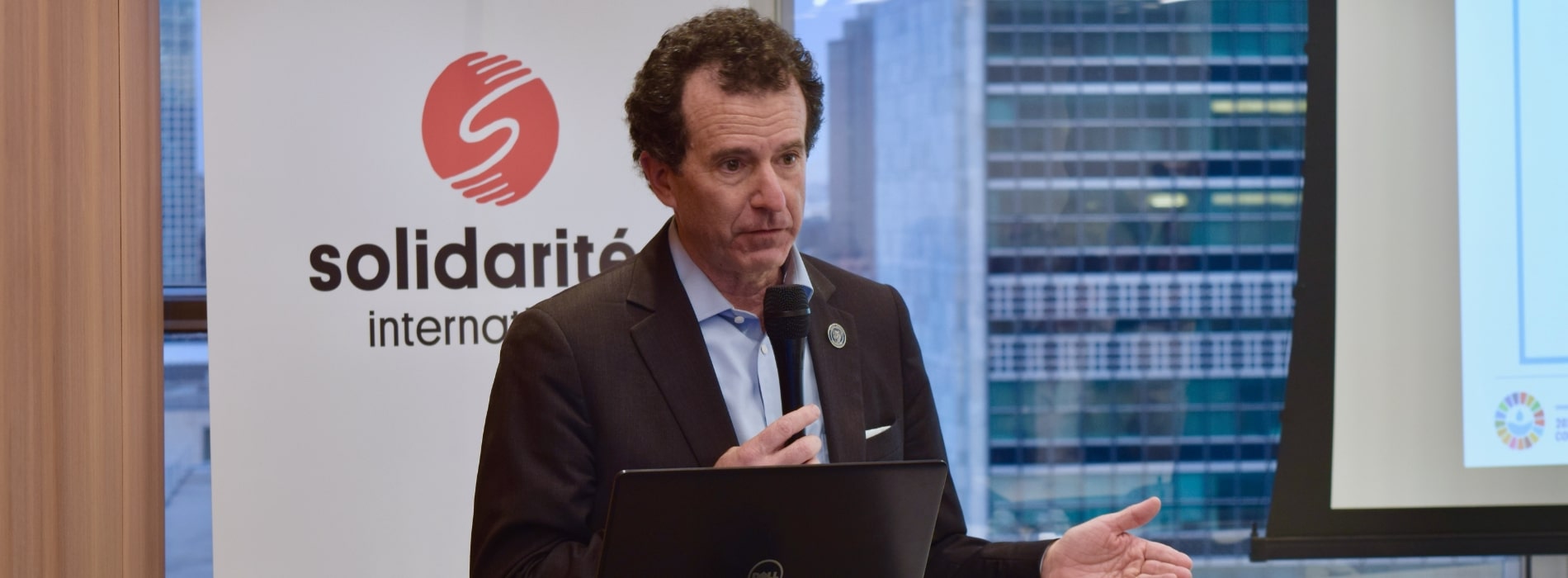
Predictive analytics, he explained, uses geospatial modeling and machine learning to predict where cholera outbreaks may occur by combining climatic factors like rainfall and temperature with socio-environmental factors like conflict, poverty indices, and building damage. Right now, he said, the UK Government, and the Meteorological Association of the CDO are working together with UNICEF and other US scientists to try to predict where cholera is most at risk in Yemen. “Sounds wonderful in theory,” he said, but it’s “much more difficult to do in reality.”
The other exciting area of research noted by Dr. Spiegel is targeted interventions—reaching hotspots quickly and strategically before they get too large, while maximizing the impact of available resources. Given the recent confluence of supply chain issues, rising caseloads, and low WASH supplies, this strategy has become especially critical, he explained.
The two targeted intervention strategies of particular importance, he said, are oral cholera vaccine (OCV), and case area targeted intervention (CATI). OCV, he explained, can be used as part of a pre-emptive vaccination effort in high risk areas, even if it’s only one of the two recommended doses.
CATI involves focusing on an area within 50 to 150 meters around a case. “Research has shown that the risk of cholera increases around the case,” he said, so with multidisciplinary teams of WASH and health representatives, efforts can be made to reduce the spread of cholera before it gets too large.
Of course, he said, to get health and WASH teams to work together and share information is a big challenge. But it is critical, he said—coordination mechanisms for fighting cholera in humanitarian settings, “they just ain’t working.”
Statement of support from the French Ministry of Health
Ahead of the panel discussion, the crowd received a brief statement from Benoit Sevcik, the health and social affairs advisor of the French Embassy in Washington, who reaffirmed the French government’s commitment to reducing and preventing infectious diseases, particularly as it relates to drinking water supply.
In the aftermath of the COVID-19 pandemic, Sevcik explained, we’ve been reminded of the critical importance that access to safe drinking water has on our physical, mental, and social health. Today, nearly 30,000 people in Metropolitan France, and probably ten times more people in France’s overseas territories, are facing difficult or even impossible access to water due to their living conditions, he said.
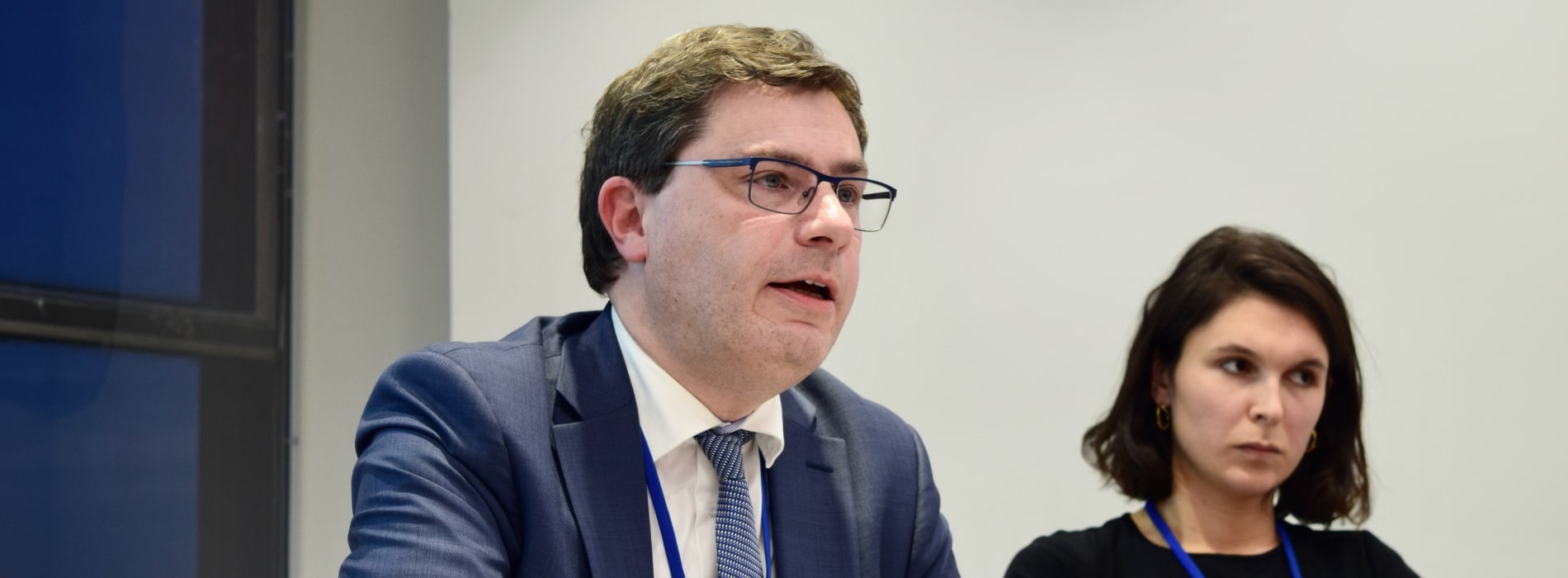
The French Ministry of Health is committed to changing this condition by developing a range of tools and programs. These measures aim at covering the basic water needs of people in France, and also those in the overseas territories—a cost that will be supported by the French government. As a co-leading country in the matter of equitable access to drinking water and sanitation at the United Nations Economic Commission for Europe and the WHO Regional Office for Europe, Sevcik said, France is inviting other partners to join the protocol on water and health, and benefit from the process of knowledge and experience sharing.
Esteemed panel discussion
SOLIDARITÉS INTERNATIONAL was privileged to host a group of seven experts from across the humanitarian and development fields to discuss the current state of cholera prevention and provide insights into what can be done to combat the illness.
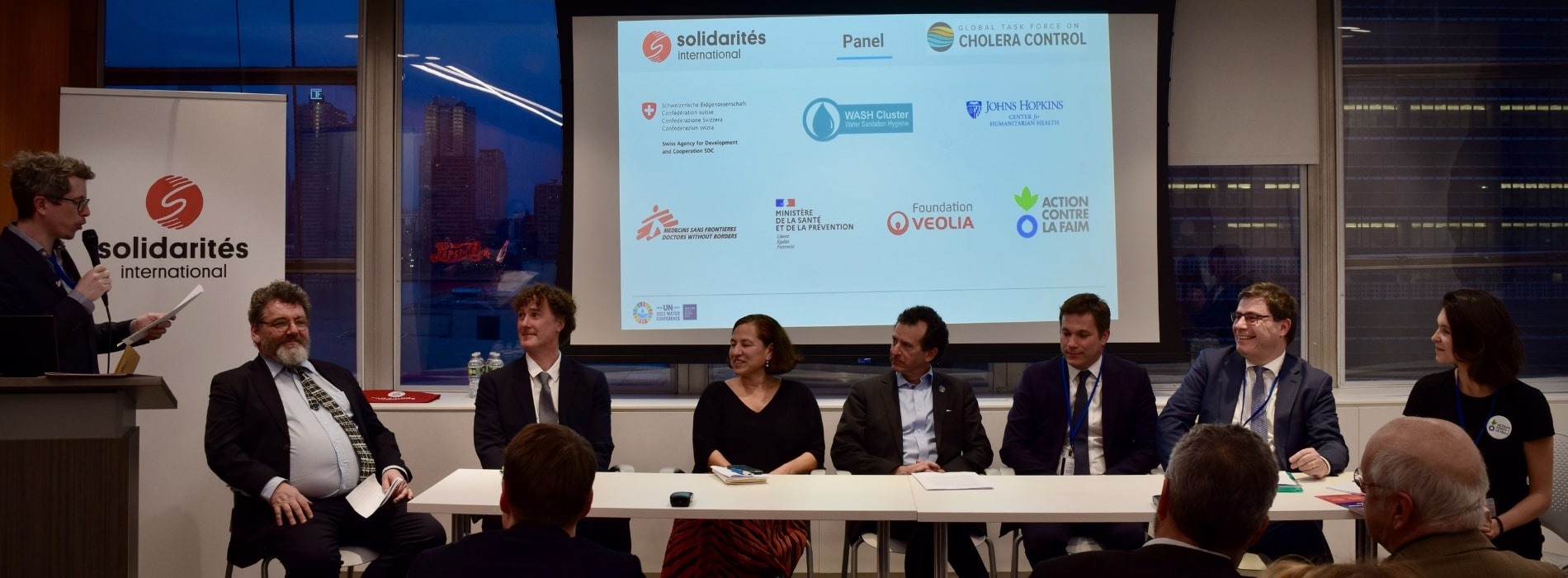
The panel kicked off with a discussion about data and surveillance. Echoing the points raised by Dr. Spiegel during his presentation, Dr. Coldiron noted a few of the outstanding issues he’s faced in crisis situations as it relates to surveillance. The truth is that “you can’t really take targeted action without good surveillance,” he said. We’ve been talking about silos between the WASH and health sector, he continued, but there are also inter-disease silos that have an impact, too. “You often have cholera surveillance and then a parallel system for meningitis surveillance,” he said, like in Northern Nigeria. So in an inter-epidemic period, it’s critical to design an integrated surveillance system that is responsive to all sorts of things and not just one.
Dr. Spiegel built on this idea with a few comments on the ways cholera research can be improved. Among other factors, he said, one critical element is ensuring that both qualitative and quantitative research are being used jointly. Another matter is the difficulty of setting up research settings in insecure humanitarian environments, “a safe place for research to occur.” Dr. Coldiron modified this point by adding that there are certain places where researchers can be better prepared; where outbreaks are more likely to occur.
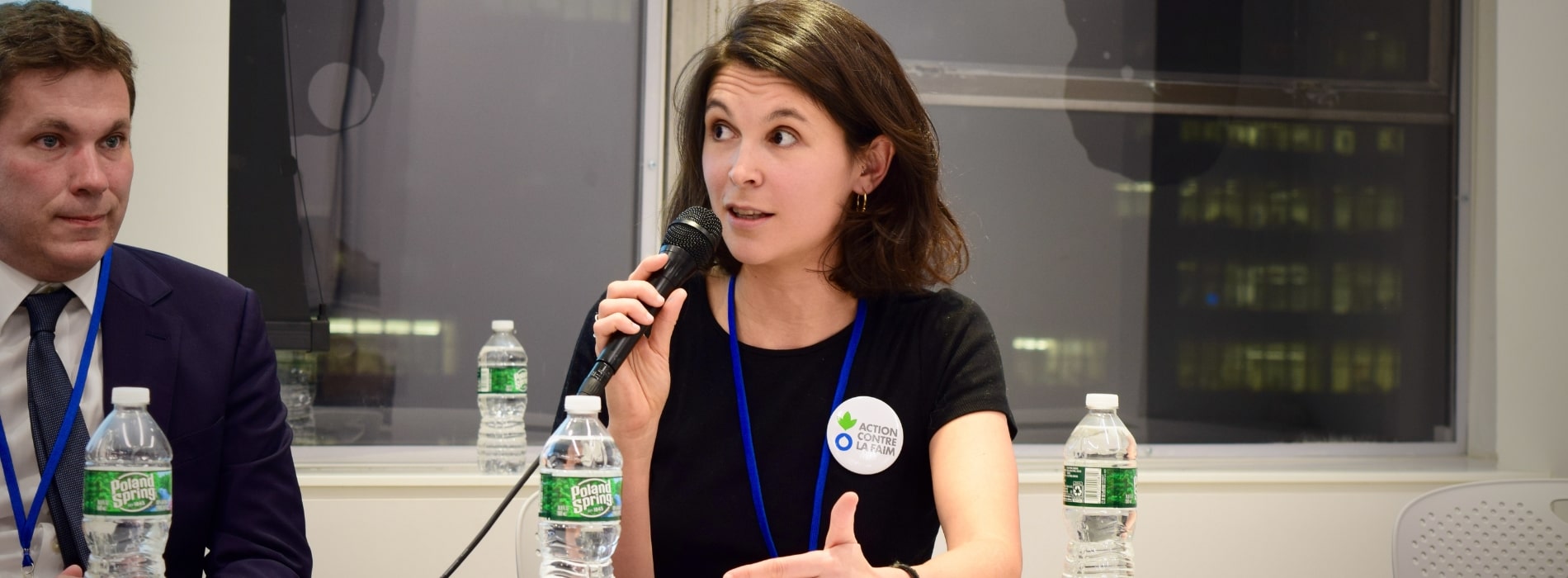
Camille Bureau agreed. Operation research is key for us as operational actors on the ground, she said, it’s a “necessity to have research integrated into action.” As humanitarian actors, she explained, another challenge has been the need to follow rigorous scientific protocols in the midst of a crisis, such as Northern Nigeria. “Research is key and we need it,” she said, “but, also, we’re facing a lot of capacity issues and financial challenges to make it happen.”
David Poinard reinforced this idea with a comment on long term research. Alongside a group of research partners in the Democratic Republic of Congo, he mentioned a new study from the Veolia Foundation that has shown that, when there is no drinking water supply, the number of Cholera cases increases by 155%. With scientific results, we can better explain the issue to stakeholders, he explained, especially to the government and the community. “We need research for better advocacy,” he said.
We also need-multi sectoral coordination and leadership, said Monica Ramos; “responses that are holistic, not only to cholera, but also to prevent and prepare.” In 2019, she explained, UNICEF launched a joint framework with the health cluster and looked closely at how to improve their work. The results came down to four factors, she said: strengthening preparedness, enhancing analysis, focusing on integration, and advocacy.
Closing Remarks
As the panel discussion came to a close, each of the participants offered their own key message to the decision makers of the UN water conference on what it will take to reach the goal of ending cholera outbreaks across the world. Here are their responses:
- Marc-Andre Bunzli: “If we solve the problem of world peace, we will solve the problem of cholera. So my message is ‘peace and love.’”
- David Poinard: “You know what to do, we know what to do. We must act now.”
- Monica Ramos: “Let’s make cholera a part of the broader strategic processes that go on around us. Let’s ensure it’s embedded not only in humanitarian work, but in development, too, and that we are able to get our message out as broad as wide as possible so that it’s a message for all and so that we leave no one behind.”
- Paul Spiegel: “The issue, particularly with cholera, is one of longer-term WASH and water sanitation infrastructure, so the ongoing divide between humanitarian and development funding needs to be broken down.”
- Matthew Coldiron: “My take home message is that right now things are really going off the rails in the immediate epidemic response. The fact that there isn’t a vaccine and the fact that case fatality rates are three and 4% means that the most vulnerable are not accessing care. The UN water conference is about the big solution, but for the next two or three years we have to get things back on track. We have to do case management right. We have to get a vaccine manufacturer, and we can’t lose track of the immediate challenge because of the enormity of the long term.”
- Camille Bureau: “My key takeaway message will be to integrate—integrate better with WASH and health, integrate better humanitarian and development, integrate better research to action.”
© Sam Venis
